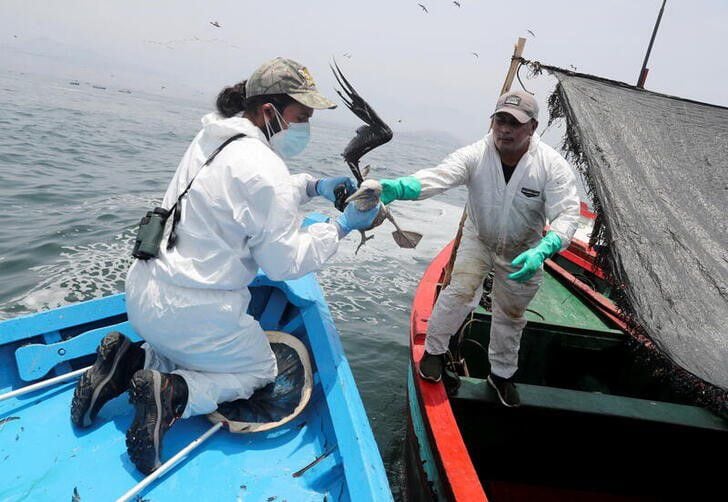
While beach cleaning continues following the environmental disaster caused by Repsol, the authorities are continuing investigations to determine the causes of the oil leak to waters of the Peruvian sea. The Special Prosecutor's Office for Environmental Matters (FEMA) in Northwest Lima has seized a piece that connected the Italian ship Mare Doricum with the pipeline that carried oil to the Refinery La Pampilla S.A., managed by the questioned Spanish company.
It is a piece called PLEM (Pipeline End Manifold) that was seized at the Multibuoy Terminal No. 2 of La Pampilla, “in order to guarantee the protection of this important underwater piece for the collection and distribution of crude oil at sea”. This will be transferred to accredited laboratories to determine if it was the cause of the oil leak that began on January 15, 2022.
“After unhooking the PLEM, located at a depth of 18 meters, the parts (valves, ducts and pipes) were recognized by technical experts for a first approach and printing. Then, the crime scene was perpetuated with experts from the Criminal Division of the Peruvian National Police,” said prosecutor Ariel Tapia.
The prosecutor's office holds the thesis that this piece would have been the origin of the ecological disaster that still holds the attention of the authorities and that affected various fishing families.
The result of the expert work will allow us to respond to the oil spill that has affected about 18 square kilometers of marine waters, flora and fauna; as well as the economy of families living on the coast of Ventanilla, Santa Rosa, Ancón and Chancay,” said Tapia.
VICTIM CARE
The damage caused by the oil spill has gone beyond the shores and knocked on the doors of families whose source of income was the catch of the day. Since the ecological disaster was confirmed, it was reported that the affected families would be treated by the authorities and guilty of the spill. Recently, Environment Minister Modesto Montoya reported that the government will not issue bonds to those affected by the Repsol company.
The reason why the Government does not hand over these bonds, as Montoya explained, is that the State does not have the power to have public money to hand over to the people affected by it ecological tragedy. In addition, he pointed out that in order to change this, they have submitted a bill to the Congress of the Republic so that the funds can be allocated.

“The rules do not give us that power, we cannot dispose of Peruvians' money as we would like to help the people affected. That is why we have summoned the company and reached an agreement to make this compensation of 3 000 soles,” he said in RPP Noticias.
Given that the delivery of money will take several months as well as the determination of the real impact on the families pocket, the 3,000 soles have been arranged to be a first installment until the final amount is determined. “This process can take months, I can't get ahead of it. There are expert experts who do a more complex study. But of course, the State has to ensure that the responsible company has to bear all the costs. That is why this agreement has been reached for an advance of 3 000 soles and of course, there are some communities that have apparently not been considered. A common standard has been made,” Montoya said.
KEEP READING
Últimas Noticias
Debanhi Escobar: they secured the motel where she was found lifeless in a cistern

The oldest person in the world died at the age of 119

Macabre find in CDMX: they left a body bagged and tied in a taxi
The eagles of America will face Manchester City in a duel of legends. Here are the details

Why is it good to bring dogs out to know the world when they are puppies




